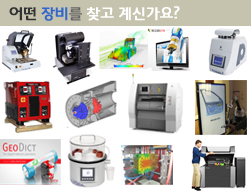| ABSTRACT |
Six macrolessons that should be learned from the first 50 years of the Space Age: 1. Absent an Asimovian "psychohistory" that would allow us to foresee the statistical probabilities of the future, history is not predictive, and it cannot guarantee that exploration (human or robotic) will result in a more creative society.99 Numerous factors regulate society, which, after all, is composed of individuals more unpredictable than the gas molecules of statistical mechanics. But history, nevertheless, suggests that robust exploration, undertaken by a nation that continually looks forward to the new, enhances its chances of survival as a vibrant society. 2. It is always tempting to sacrifice long-term goals for perceived short-term needs. And it is almost always a bad idea, unless survival is at stake and there is no long term. This is one lesson that the U.S. Congress could particularly take to heart.100 3. Long-term goals need to be better understood in the political process. If this were true, we might not throw away a $25 billion investment on launch technology, as the United States did with Apollo, with consequences we are still suffering more than three decades later. As space policy analyst John Logsdon has memorably put it, NASA at 50 is still suffering from NASA at 12. 4. There is never enough funding to do everything. Painful priorities must be set. This seems to be common sense. But NASA has often not set priorities, tried to do too much, and failed to achieve major goals as a consequence. 5. Human spaceflight will not, and should not, go away. Robotic spaceflight will not, and should not, go away. It is always a question of balancing resources, but in the end, each needs the other, and they should exist in a synergistic relationship. The Hubble Space Telescope servicing missions are the role model here. If in the long term, humans become intelligent robots, the problem of this false dichotomy will disappear.101 6. Risk and exploration have always gone hand-in-hand, and they will forever go hand in hand. Safety is a priority, but it is the number-two priority. The number-one priority is to go, to get off the launchpad. Otherwise no explorer would ever have left the ports of Palos, Lisbon, and Sanl car de Barrameda. And no rocket would ever have left its launchpad. NASA understands this;; the astronauts understand it;; but the public does not. Thousands are killed each year on highways, but no one calls for an end to automobiles. A forward-looking nation must take risks. As we stand at NASA s 50th anniversary and on the verge of a presidential transition -always a perilous time for government agencies- we and our leaders need to remember that (rhetoric notwithstanding) exploration is not a destiny, but a choice. It is a choice that any society must make in the midst of many other priorities. History hints, at least, that those societies that make the wrong choice will suffer the consequences. At the 100th anniversary of NASA in 2058, our descendants will be looking back at the choices we made as the leading agency for exploration in the world, as well as the choices made by the other nations of the world. The choice to explore or not to explore, in the midst of a world perpetually swamped by more pressing problems, is the ultimate challenge to NASA, the nation, and nation states constituting planet Earth. That choice is the proper context embodying the meaning and the essence of the Space Age. The universe awaits the nation, or consortium of nations, willing to take the risks and meet the challenge. 101. |





















